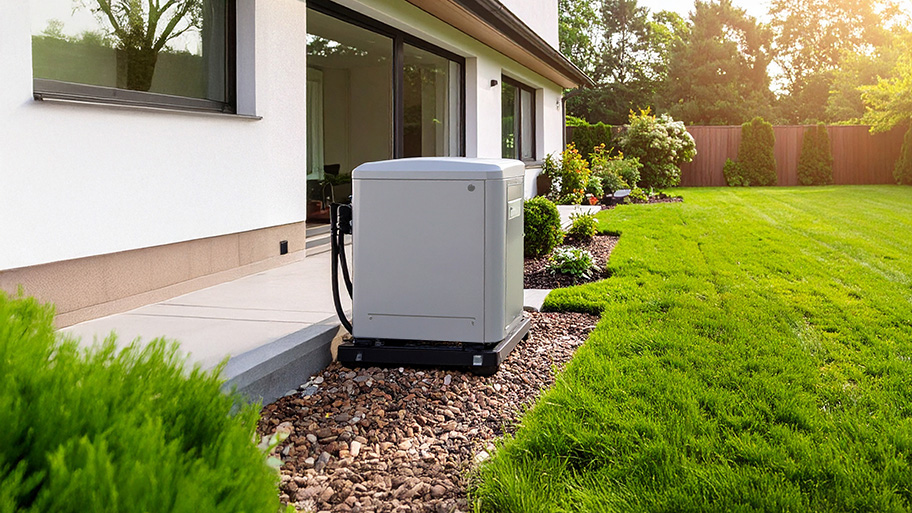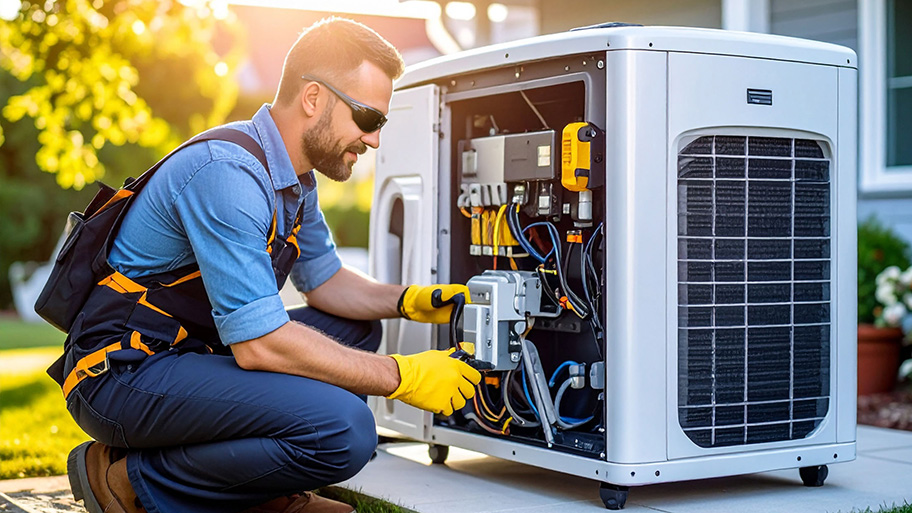
The average cost of a whole-house generator falls between $5,000 and $25,000. Keep reading to learn how much you can expect to spend.
Spark up a good conversation


A portable generator powers specific appliances during an outage—or your entire home if it’s powerful enough. You’ll need a safe setup for your portable generator, including a stable pad and an outdoor outlet. Here are seven backup generator questions to expect from a pro when you discuss installation details.
Power outages can happen anytime but are most common during winter storms, wind storms, and heat waves. If you want your portable generator ready for the upcoming season, talk with your contractor about getting it installed sooner rather than later.
Portable generators run on propane, natural gas, or solar energy and vary in size and power. Brands and fuel types also impact the cost. Research the types of generators or ask a licensed electrician for their recommendation based on your use, needs, and budget.
Consider the critical appliances you need during a power outage, such as medical devices, your freezer, and your refrigerator. Most portable generators can power a few major appliances but not the whole house. If you store lots of food in your freezer, consider hooking power to that instead of an electric stove or water heater. The more devices you want to power, the more powerful the generator you’ll need, and the more expensive it’ll be to run.
A generator should be placed outdoors at least 20 feet away from your home on a concrete or stable pad. Consider where you plan to put the portable generator, whether on a driveway, patio, or a newly poured concrete pad. You’ll also need to ensure you have a proper outdoor electrical outlet.
When the generator is not in use, store it in a cool, dry, well-ventilated place, such as a garage or shed, and keep it away from heat and fire sources. Think about potential placement areas to discuss with your pro and ask for their recommendation on the best location for your backup generator.
If you don’t have an outdoor outlet already, a licensed electrician will install one, as you should never plug a generator into an indoor outlet. You may also need to add a transfer switch on your electrical panel, but that’s more common for whole-house fixed generators. Any extension cords you use for appliances should be heavy-duty to support the power. Considering these elements will help you plan the services you need your pro to handle.
You can buy a portable generator online or at a local home improvement store. Licensed electricians near you can also recommend and purchase a generator for you, allowing them to manage the process from start to finish and ensure the safest installation.
Portable generators cost $500 to $2,000 on average, depending on the type, brand, and fuel. Pouring a concrete pad costs $50 to $75 per square foot, and installing an outdoor outlet ranges from $150 to $260. While there is an upfront investment for installing a generator, it’s a device that can save you time, money, and headaches in the long run.
From average costs to expert advice, get all the answers you need to get your job done.

The average cost of a whole-house generator falls between $5,000 and $25,000. Keep reading to learn how much you can expect to spend.

Keeping on top of generator maintenance and repairs gives you extra peace of mind as a homeowner. Find out how much regular generator maintenance costs.

The cost to install a generator transfer switch depends on several factors. Our guide will help you understand all of the costs.

Traditional and inverter generators can provide off-grid or emergency power. Learn the pros and cons of a traditional generator vs. inverter generator.

Before installing a fixed generator, think about your use and space. Review these backup generator questions to prepare for a talk with your contractor.

Backup generators are a necessity to keep your home powered during a hurricane. Find out how to choose the best generator for hurricane season.